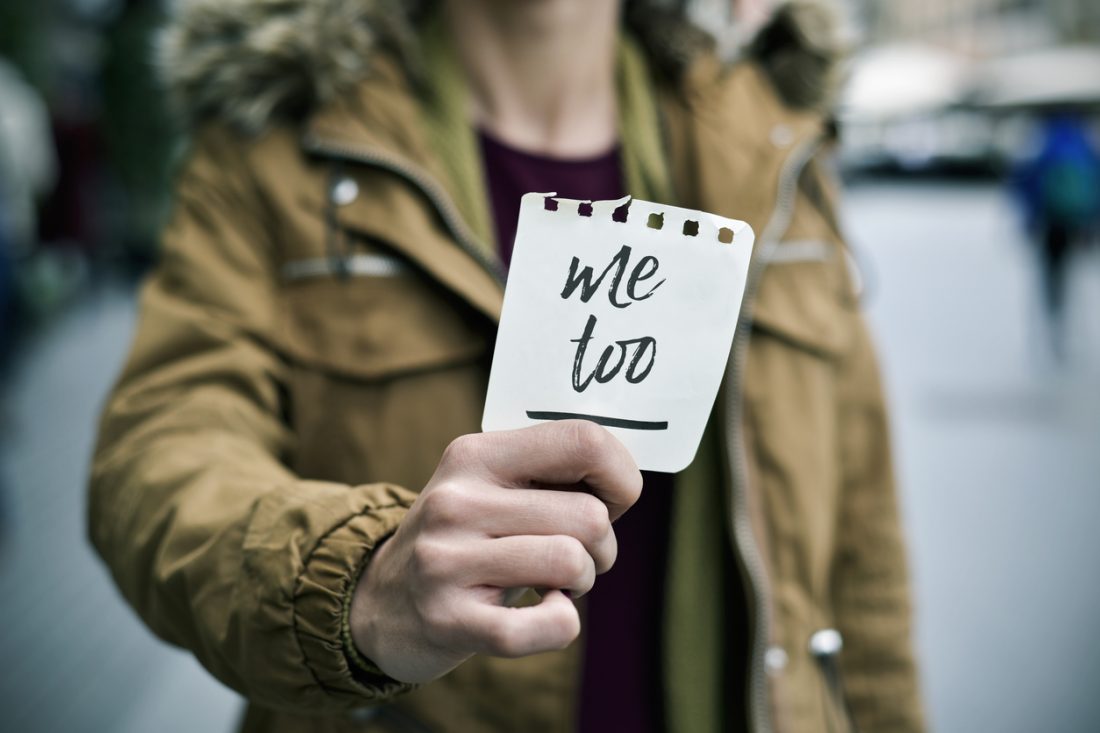 The “me too” movement has been in existence since 2006 when it was founded by Tarana Burke, but truly became prominent with allegations against Harvey Weinstein in 2017 when people took to Twitter with #MeToo.
The “me too” movement has been in existence since 2006 when it was founded by Tarana Burke, but truly became prominent with allegations against Harvey Weinstein in 2017 when people took to Twitter with #MeToo.
It has been nearly 3 years since the #MeToo began as we know it and a lot has changed in this time, one huge change happening very recently: Harvey Weinstein being found guilty of first-degree criminal sexual act and third-degree rape and sentenced to 23 years in prison.
While Weinstein was punished for his heinous actions, he is certainly not the only person to commit such crimes, and the sad but true part is that many people like him will never face nearly the same consequences – if they face any.
Because of the severity of sexual assault and harassment, the #MeToo movement has made waves in the workplace, specifically in Human Resources departments.
Created Open Dialogue
While the experiences of people involved in the #MeToo may be upsetting, disheartening, and outraging, there is one thing that the whole movement is doing: making people talk.
With prominent actresses/actors stepping forward to tell their stories, like beloved TV and film actor Terry Crews, there is a national, even international, dialogue about harassment in the workplace. This is incredibly important when it comes to higher-ups participating in the conversation.
In light of #MeToo, CEOs, company owners, and leaders have began speaking up about appropriate and inappropriate workplace behavior. In the past they may have chosen to remain silent, but the public’s reaction has changed now. Leadership understands that change comes from the top and strengthening their relationship with the HR department is leading to new initiatives and employees feeling more comfortable going to an HR specialist with an issue.
“Talking through change openly and staying professional at all times will allow companies the chance to grow and develop with a solid backbone. It is refreshing to see positive change and watch companies intentionally drive their culture!” says Sharon Tsao, CMO, Contemporary Staffing Solutions.
Renovated Policies and Training
While anti-harassment policies exist at the majority of workplaces and many workplaces claim to be Equal Opportunity Employers, the #MeToo movement has pointed out the need for more comprehensive policies.
Many anti-harassment policies are focused about the legality of issues. Just because something isn’t illegal, though, doesn’t mean it is right or appropriate. Because of this, there is now a push to create policies that highlight acceptable behaviors to benefit the workplace overall.
There is also now a push to make sure employees understand company policies.
HR specialists have begun carrying out updated and inclusive employee training that focuses on bystander intervention and reporting incidents to the proper person through the proper methods.
Placed a focus on actual diversity and inclusion
When considering new candidates for a position, it is important to consider everything they may bring to a company. Do they bring a new skillset that the company has yet to see? A different perspective? A work background that you don’t typically come across?
The #MeToo movement has called out industries for being stagnant in our ever-changing modern world, which has resulted in progressive workplaces understanding the need for diversity. Having true diversity, which can include ethnicity, gender, age, as well as non-traditional backgrounds and education, can only benefit the work environment.
Having diverse associates allows a wider array of ideas and solutions and insight into different demographics. This leads to a business becoming more knowledgeable, innovative, and all over well-rounded.
Placed a focus on Cultural fit
The #MeToo movement has revealed importance of properly screening candidates for cultural fit before hiring them. Employers have to look at more than just education and previous experience of potential candidates. They have to really consider: “does this person embody the values of the company and will they get along with the other employees?”
This involves HR professionals having a firm grasp when it comes to hiring. Hiring managers are being coached on the necessity of having candidates fit well with the company culture and other employees, and the risks and consequences of not adhering to this.
When conducting interviews, managers and recruiters will be very attentive to the interviewee, interpreting their verbal and body language, and ask specific questions to assess their open-mindedness at fit at the company. The predictive index assessment will help to support cognitive and behavioral traits. They also have tools that measure motivation and culture.
Moving Forward
The brave new workplace world will ideally no longer tolerate harassment and discrimination. It is unfortunate that change comes through hardship, but the progression of Human Resources at companies is important and necessary. Because of the prominence of the #MeToo movement, companies are working towards making work environments accepting and safe for all employees.
CSS is and always has stressed the importance of company culture and fit. We believe in finding not only finding quality candidates, but candidates that we believe show our values and will be happy here and with our client companies.
Candidates looking for great, equal opportunity employers and clients looking for vetted and skilled employees, look no further: reach out to CSS through our website www.ContemporaryStaffing.com, 888-2-MY-JOBS, or through our local offices under the Contact Us tab of our website to find out more information on who we are and how we can help you.
Read More helpful & inspiring tips here.
Contemporary Staffing connects job seekers to hiring managers nationally in the following professions: Accounting & Finance, Call Center & Office, Human Resources, IT, Salesforce, and Sales & Marketing.
